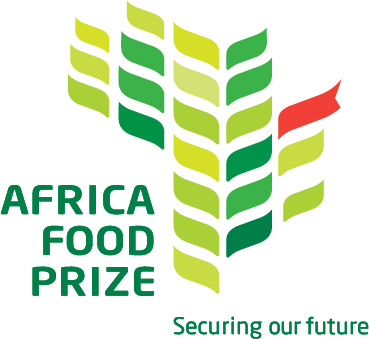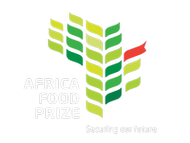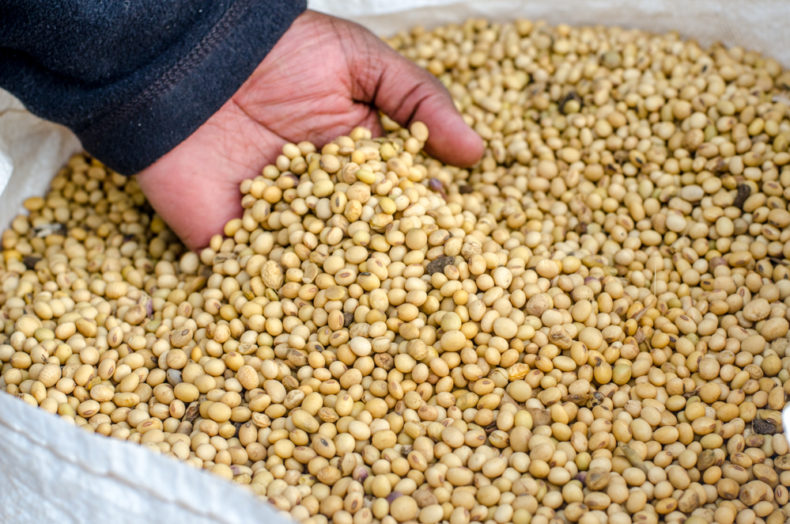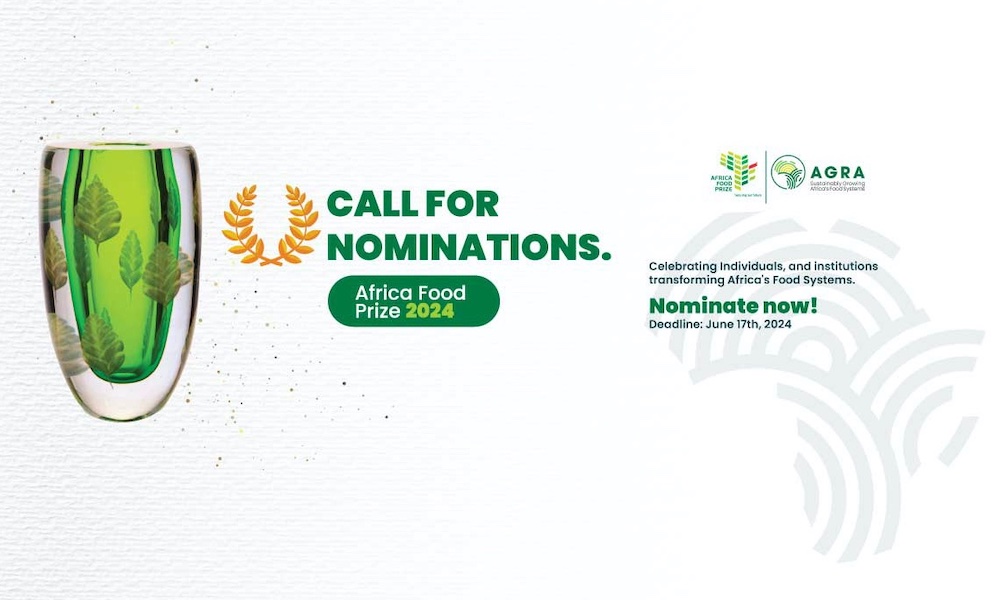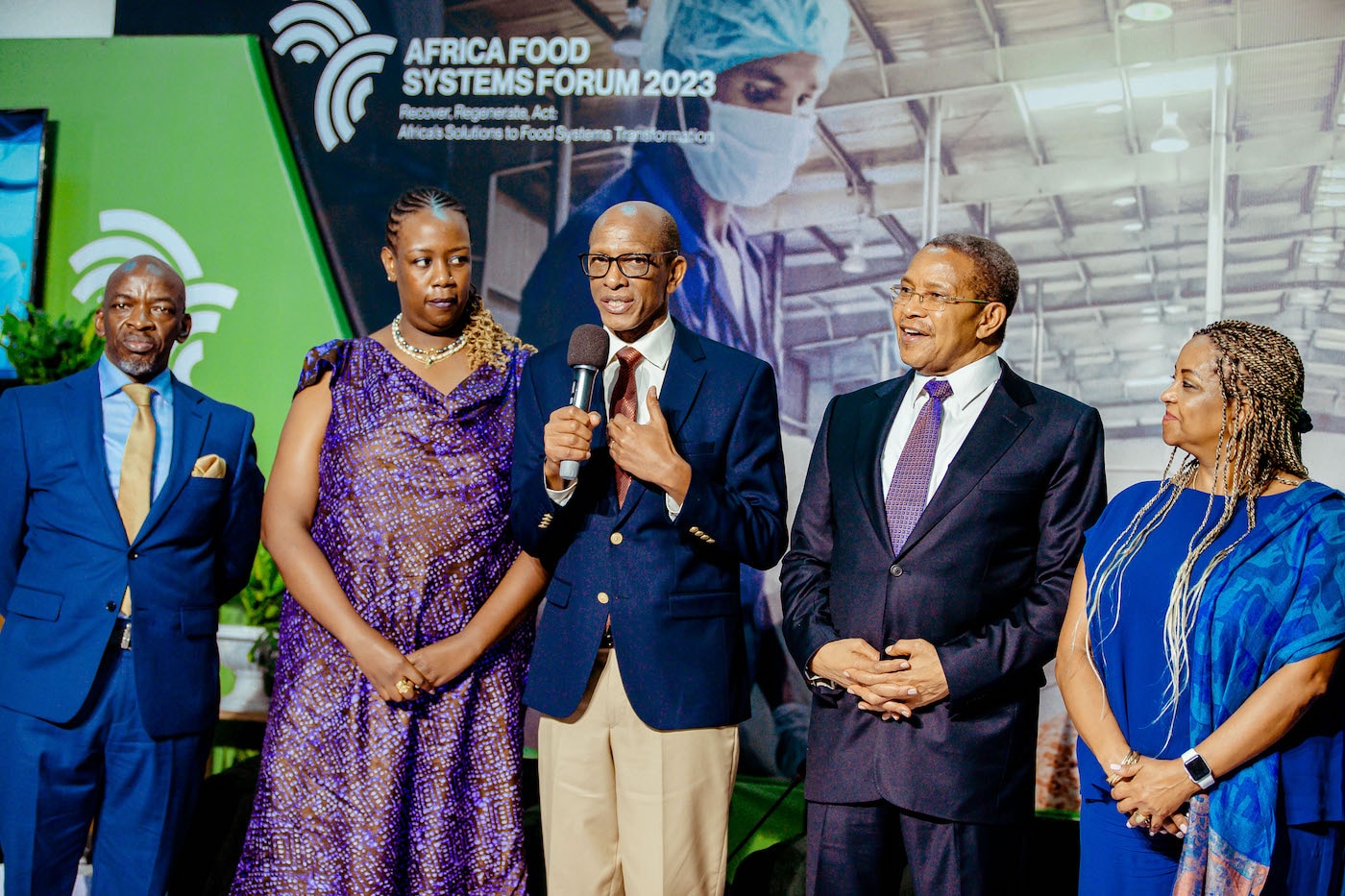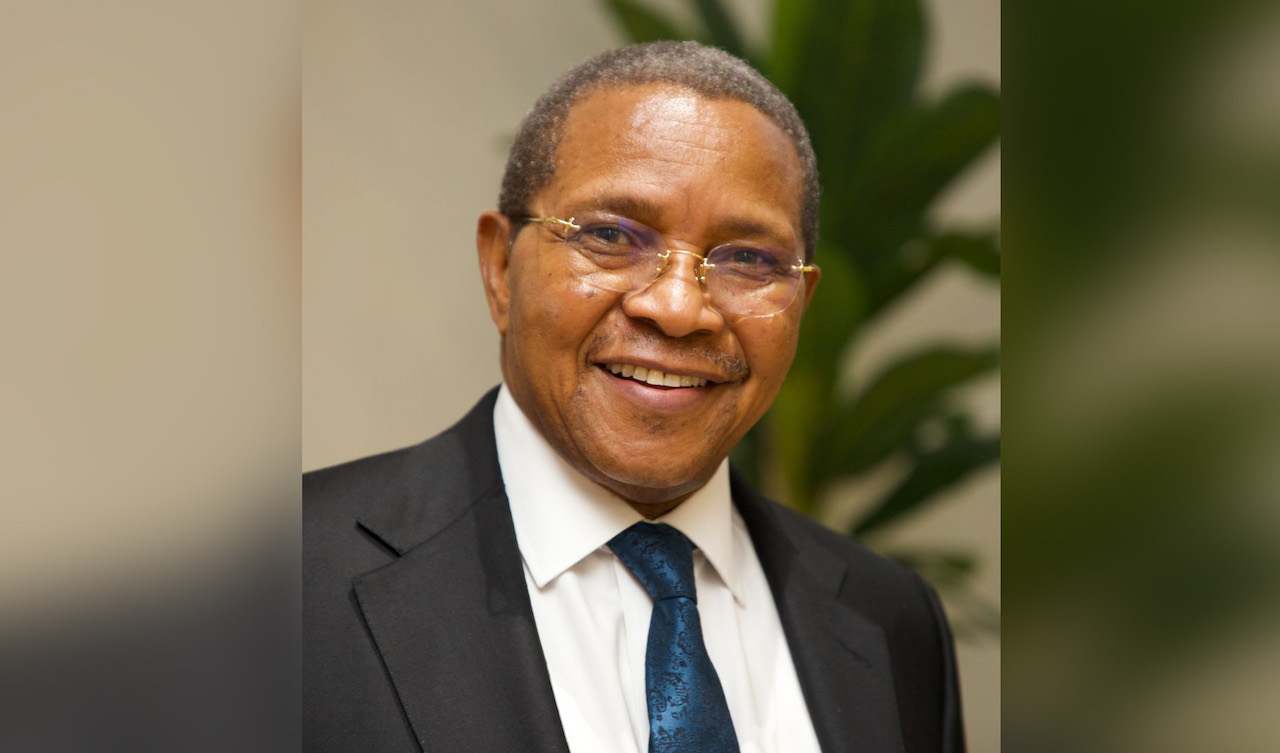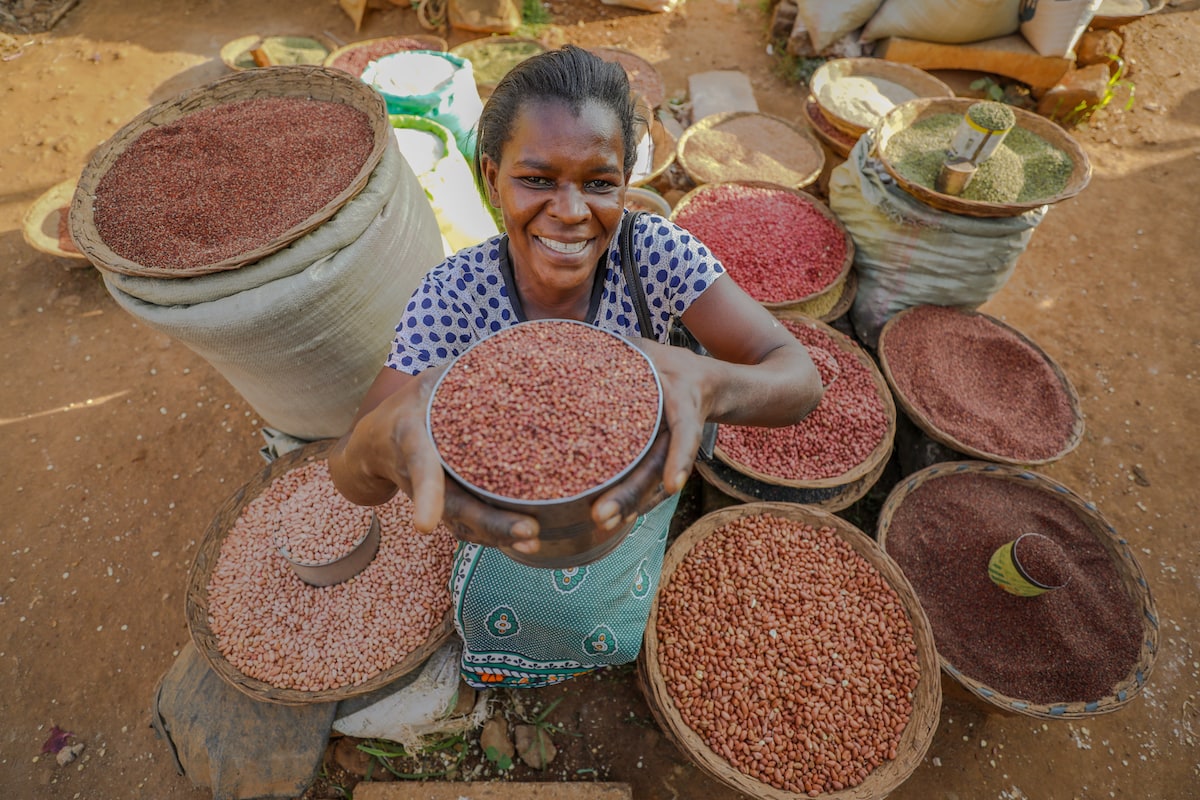At a young age, Maïmouna Coulibaly watched her mother tilling the fields, growing a little bit of everything — millet, sorghum, maize, rice and peanuts — to support and nourish the family, often coming up with only a basketful of grains.
At a young age, Maïmouna Coulibaly watched her mother tilling the fields, growing a little bit of everything — millet, sorghum, maize, rice and peanuts — to support and nourish the family, often coming up with only a basketful of grains.
Maïmouna’s mother is among the 80 percent of the Malian population who rely on subsistence farming as their main source of food and income. They all face this quadruple-edged sword of drought, conflict, dearth of rudimentary infrastructure, and overall lack of government presence in many parts of the country.
This is the reality faced by 3.83 million people who are food insecure in 2017.
FROM MALI TO IOWA
From the family’s farm cradle in rural Mali, the nascent hearth of marriage led Maïmouna and her husband Ntji to Iowa where he had won a USAID scholarship to study agronomy. The start of two dynamic partnerships was born.
The otherwise precocious and curious young bride found herself amid the cornfields of Iowa, dumbfounded by unending fields of maize, so different from what she was used to seeing back in her motherland’s plots. Her eagerness got her into those fields — picking, shucking, sorting and packaging maize — and learning English.
She witnessed a eureka moment when in a grocery store, she saw rows and rows of neatly stacked, beautifully branded and packaged, high-quality seeds of corn — the very corn she was processing in the field.
“From the maize fields to the grocery store, that’s what I will do for Mali!” proclaimed Maïmouna to her husband.
TÔ TO THE RESCUE
Upon their return to Mali in the late 1980s, she was often told that Malian farmers would not pay to buy seeds. Despite the dissuasion, she put her new English skills to use to garner a job with the Cooperative League of the United States of America, while continuing to ferment her idea of creating a seed company.
Fifteen years later, when that cooperative closed its doors in 2003, Maïmouna knew the time was now or never. She bought all of their office furniture to furnish her newly formed company.
“Faso Kaba yéré yéré donw wa!” exclaimed a customer when he understood the value of high quality, certified seeds grown from the Malian earth, not imported.
And thus, “Faso Kaba” Seed Company was born, the “maize from the motherland” in the local language Bamanakan. She opened her shop in 2003 selling maize seeds.
Soon, she discovered that requests for seeds were in demand but the supply was not.
Meanwhile, struggling to keep her “mom and pop” shop open, enter Alliance for a Green Revolution in Africa, headed by former UN Secretary General Kofi Annan.
It was the holy month of Ramadan and fasting meant that it was hard to get a good Malian dish in town when the Alliance representative arrived to conduct their first study. Maïmouna offered to prepare “tô,” a national dish made of maize flour. With bellies full and encouragement buoyed, Maïmouna decided to keep her shop open.
ENTREPRENEURIAL SPIRIT
Maïmouna’s efforts paid off. In 2007, she received a grant from Alliance to boost her seed processing efficiency to the next level.
She was determined to be the nucleus of an inclusive partnership, public and private, by bridging cash-strapped subsistence farmers with the world of seed research, alongside smart technology and entrepreneurship.
In 2010, the varying experiences came full circle. USAID, through its Feed the Future program, supported Maïmouna’s efforts through capacity building training for Faso Kaba staff which improved its seed processing quality, output and efficiency.
ACCOMPLISHMENTS AND ACCOLADES
Her initial visions in Iowa of supplying Malian farmers with good quality seeds, stacked neatly in her own shop, had come to fruition. More than 20 years later, she has proven that woman-led entrepreneurship can reduce poverty, eradicate famine, improve nutrition and increase economic might, contributing to a resilient population, one seed at a time.
With the support of USAID, her company boasts over 30 staff members — half of whom are women — along with roughly 80 field laborers depending on the season; 150 seed distributors, a modern office; a processing plant; and demonstration plots where scientists and farmers alike converge to improve seed quality.
To date, over 1 million tons of various hybrids and varieties have been sold.
Faso Kaba is the largest seed provider in Mali, while making a mark beyond Malian borders. Grains were transported to Syria, Senegal, Ghana, Côte d’Ivoire and neighboring countries during the Ebola crisis.
AMAZING GRAINS
Faso Kaba has diversified and continues to experiment to serve the needs of its clientele. Okra, millet, sorghum, peanuts, onions, cucumbers, tomatoes, peppers, watermelon and many others line the shelves.
Her husband Ntji continues to be by her side, providing scientific knowledge, technical linkages, business advice and overall encouragement.
AND THE WINNER IS…
Maïmouna was one of 2017’s premier African Food Prize winners. She and Ruth Oniang’o of Kenya were selected out of 643 candidates, with a $100,000 prize amount.
She plans to reinvest right back into Faso Kaba.
IT’S A FAMILY AFFAIR
Maïmouna and Ntji exemplify what USAID hopes to see in all its programming — people moving beyond the need for assistance. The initial “seeds” have grown a partnership that began more than 30 years ago and has borne fruit — the positive effects of being empowered in belly, mind and heart.
“She is the pillar of our family, the pillar of our motherland,” said her husband.
Originally published on: https://usaidmali.exposure.co/maize-from-the-motherland
Maïmouna’s mother is among the 80 percent of the Malian population who rely on subsistence farming as their main source of food and income. They all face this quadruple-edged sword of drought, conflict, dearth of rudimentary infrastructure, and overall lack of government presence in many parts of the country.
This is the reality faced by 3.83 million people who are food insecure in 2017.
FROM MALI TO IOWA
From the family’s farm cradle in rural Mali, the nascent hearth of marriage led Maïmouna and her husband Ntji to Iowa where he had won a USAID scholarship to study agronomy. The start of two dynamic partnerships was born.
The otherwise precocious and curious young bride found herself amid the cornfields of Iowa, dumbfounded by unending fields of maize, so different from what she was used to seeing back in her motherland’s plots. Her eagerness got her into those fields — picking, shucking, sorting and packaging maize — and learning English.
She witnessed a eureka moment when in a grocery store, she saw rows and rows of neatly stacked, beautifully branded and packaged, high-quality seeds of corn — the very corn she was processing in the field.
“From the maize fields to the grocery store, that’s what I will do for Mali!” proclaimed Maïmouna to her husband.
TÔ TO THE RESCUE
Upon their return to Mali in the late 1980s, she was often told that Malian farmers would not pay to buy seeds. Despite the dissuasion, she put her new English skills to use to garner a job with the Cooperative League of the United States of America, while continuing to ferment her idea of creating a seed company.
Fifteen years later, when that cooperative closed its doors in 2003, Maïmouna knew the time was now or never. She bought all of their office furniture to furnish her newly formed company.
“Faso Kaba yéré yéré donw wa!” exclaimed a customer when he understood the value of high quality, certified seeds grown from the Malian earth, not imported.
And thus, “Faso Kaba” Seed Company was born, the “maize from the motherland” in the local language Bamanakan. She opened her shop in 2003 selling maize seeds.
Soon, she discovered that requests for seeds were in demand but the supply was not.
Meanwhile, struggling to keep her “mom and pop” shop open, enter Alliance for a Green Revolution in Africa, headed by former UN Secretary General Kofi Annan.
It was the holy month of Ramadan and fasting meant that it was hard to get a good Malian dish in town when the Alliance representative arrived to conduct their first study. Maïmouna offered to prepare “tô,” a national dish made of maize flour. With bellies full and encouragement buoyed, Maïmouna decided to keep her shop open.
ENTREPRENEURIAL SPIRIT
Maïmouna’s efforts paid off. In 2007, she received a grant from Alliance to boost her seed processing efficiency to the next level.
She was determined to be the nucleus of an inclusive partnership, public and private, by bridging cash-strapped subsistence farmers with the world of seed research, alongside smart technology and entrepreneurship.
In 2010, the varying experiences came full circle. USAID, through its Feed the Future program, supported Maïmouna’s efforts through capacity building training for Faso Kaba staff which improved its seed processing quality, output and efficiency.
ACCOMPLISHMENTS AND ACCOLADES
Her initial visions in Iowa of supplying Malian farmers with good quality seeds, stacked neatly in her own shop, had come to fruition. More than 20 years later, she has proven that woman-led entrepreneurship can reduce poverty, eradicate famine, improve nutrition and increase economic might, contributing to a resilient population, one seed at a time.
With the support of USAID, her company boasts over 30 staff members — half of whom are women — along with roughly 80 field laborers depending on the season; 150 seed distributors, a modern office; a processing plant; and demonstration plots where scientists and farmers alike converge to improve seed quality.
To date, over 1 million tons of various hybrids and varieties have been sold.
Faso Kaba is the largest seed provider in Mali, while making a mark beyond Malian borders. Grains were transported to Syria, Senegal, Ghana, Côte d’Ivoire and neighboring countries during the Ebola crisis.
AMAZING GRAINS
Faso Kaba has diversified and continues to experiment to serve the needs of its clientele. Okra, millet, sorghum, peanuts, onions, cucumbers, tomatoes, peppers, watermelon and many others line the shelves.
Her husband Ntji continues to be by her side, providing scientific knowledge, technical linkages, business advice and overall encouragement.
AND THE WINNER IS…
Maïmouna was one of 2017’s premier African Food Prize winners. She and Ruth Oniang’o of Kenya were selected out of 643 candidates, with a $100,000 prize amount.
She plans to reinvest right back into Faso Kaba.
IT’S A FAMILY AFFAIR
Maïmouna and Ntji exemplify what USAID hopes to see in all its programming — people moving beyond the need for assistance. The initial “seeds” have grown a partnership that began more than 30 years ago and has borne fruit — the positive effects of being empowered in belly, mind and heart.
“She is the pillar of our family, the pillar of our motherland,” said her husband.
Originally published on: https://usaidmali.exposure.co/maize-from-the-motherland
